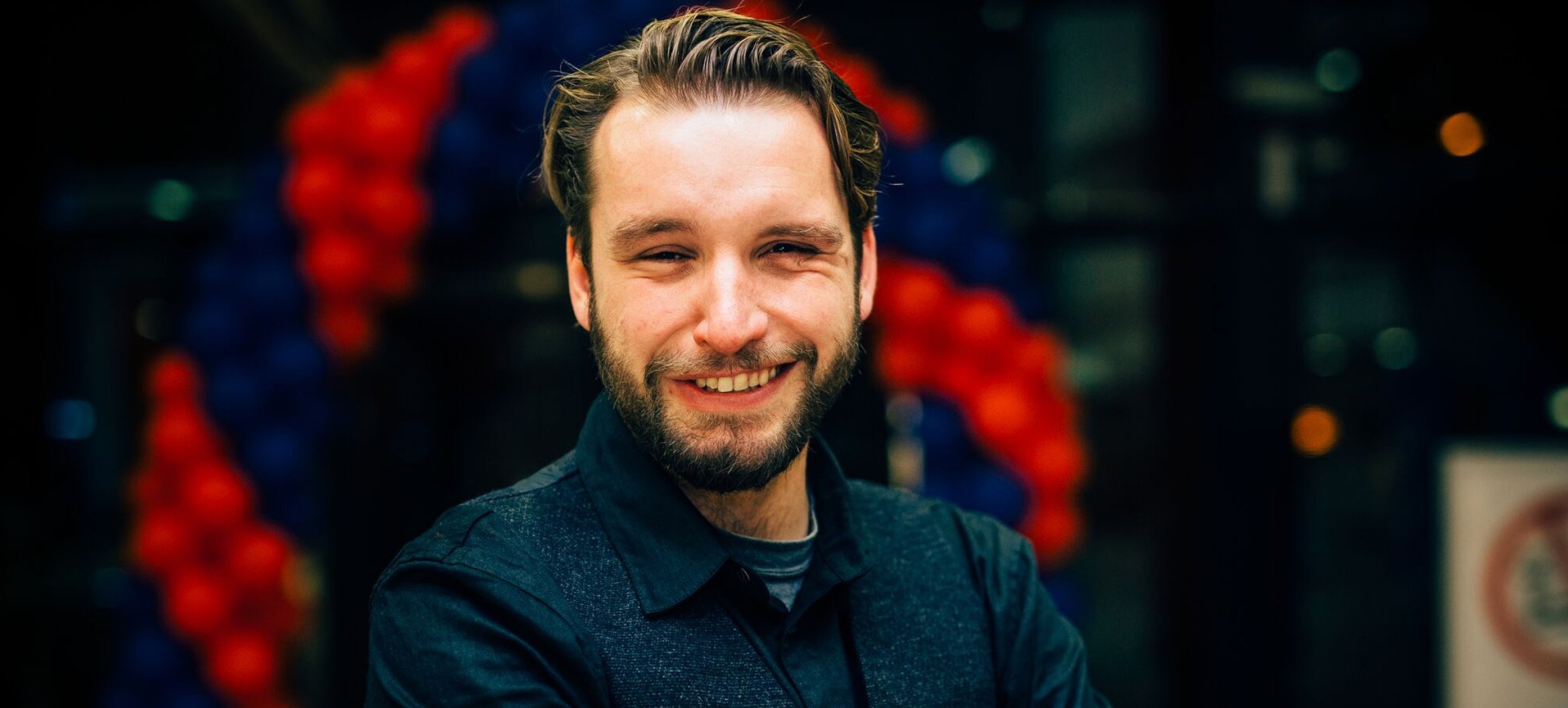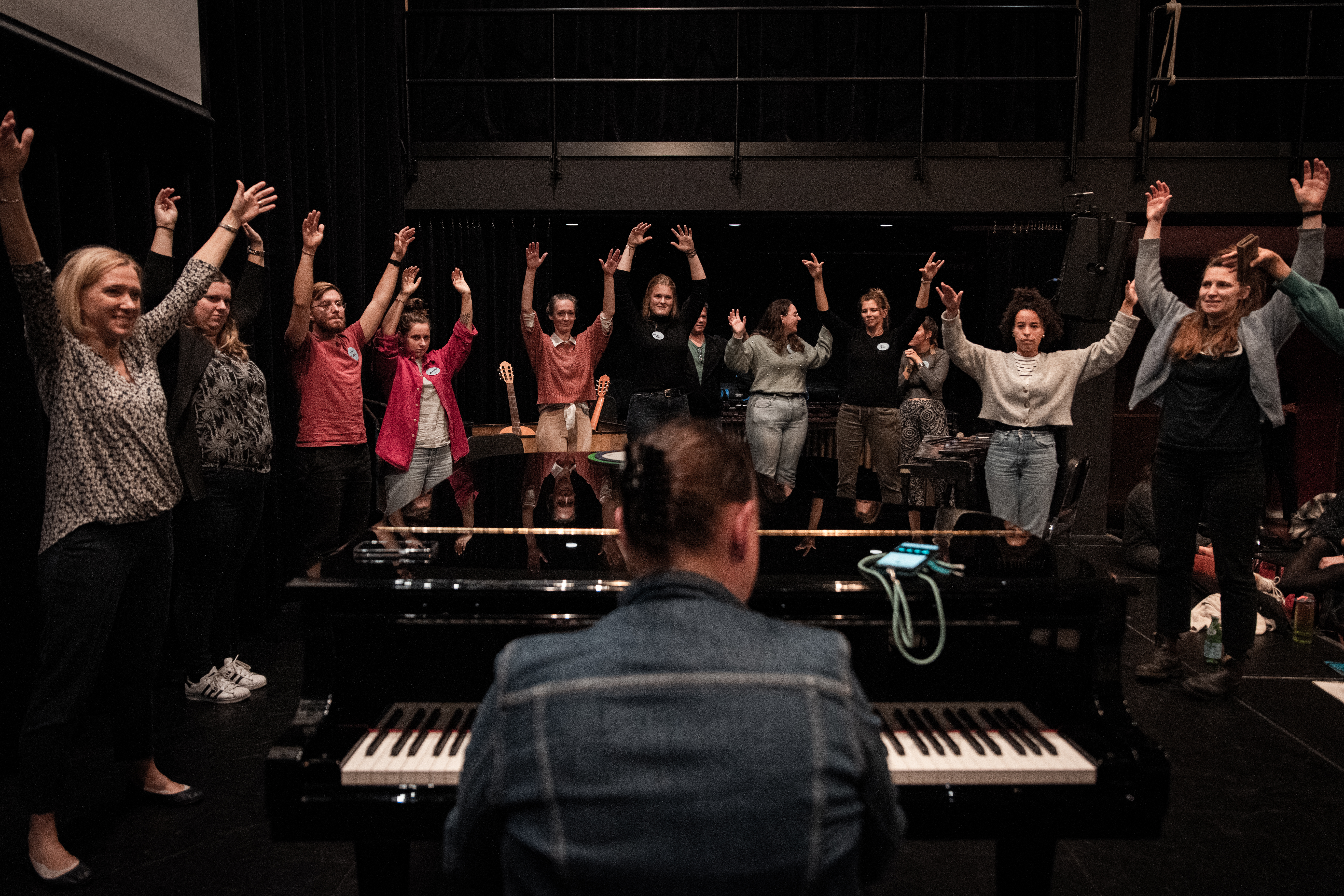The power of music therapy
- Music
Like physiotherapy, music therapy should be part of the basic health insurance package, believes Artur Jaschke. In numerous studies within his professorship Music-Based Therapies and Interventions, the ArtEZ professor has seen that the impact of music on a person's well-being and development can be enormous. Master’s and bachelor’s students play a big role in these studies.

Ask passionate neuromusicologist Artur Jaschke what music does to your brain and there’s no holding him back. “Music stimulates all areas of the brain. It activates more and more new networks. That’s because music has so much to it, like melody, rhythm, timbre, harmony and genre. And it is often linked to memories, such as the death of a loved one or a first kiss. In your life, you accumulate more and more music, and so more and more connections are made in your brain. Music has a big effect on emotions, behavior and cognitive development.”
Music as a means, not as an end
According to Jaschke, music therapy can be of value to different groups and people. “For example, babies in incubators, psychiatric patients and people with Parkinson's disease. We use music not as an end but as a means. It is not a medicine you can administer to make your symptoms go away. It takes time. Music therapy addresses the causes rather than the symptoms. And often it is about improving well-being. So for example, we can't cure Alzheimer's, but we can connect a patient with the world and with their childhood through music.”
Music therapy can help so many groups and people, for example: babies in incubators, psychiatric patients and people with Parkinson's disease."
Processing grief in Moria
The studies within the professorship are highly diverse. For instance, one student is working on a project about processing grief in the Greek refugee camp Moria. In Sudan, another student is using music therapy to work on ‘peace building’, promoting peace and freedom for individuals in this war-torn region. And there is also a student who has set up a choir and is exploring what it means for a community.
Jaschke: “Education and research are intertwined, with the Music Therapy master’s and bachelor’s courses playing a lead role. Students put forward their own ideas for research. They follow their hearts and are supported by a supervisor. We teach them how to conduct research.”
Noise-canceling incubator
Jaschke himself is investigating what music therapy can do for incubator babies with a research team. “The incubator is a noisy cocoon with lots of hospital noises. That leads to overstimulation”, explains Jaschke. On top of that, incubator babies are often extra sensitive to stimuli, and sound. Jaschke: “Parents often tell us that when a child comes home, they only settle once they hear a vacuum cleaner. We are working on a noise-cancelling incubator that works just like modern headphones. We filter out the bad sounds. Good sounds, on the other hand, such as music and language, we allow to get through, because they help the brain to develop.”

They are also working with Artificial Intelligence (AI). “When a child moves, the AI responds. For instance, it can play back the recorded voice of the mother speaking calming words if she isn't in the hospital at that moment.” They also make music by the incubator. “We are talking about one or two notes, and humming. You need to be careful not to provide too many stimuli.”
Education and research are intertwined. Students put forward their own ideas for research. They follow their hearts and are supported by a supervisor."
Part of the basic health insurance package
Music therapy is making great strides as a treatment method, but there is still a lot of work to be done. In the Netherlands, recognition for this form of therapy is largely absent, says Jaschke. “It's not a standard part of the basic health insurance package, unlike in the States and Germany. Physiotherapy is – under certain conditions – but that has taken seventy years. We need to keep going and keep doing research, but the results actually speak for themselves.”
Jaschke believes the situation in this country is a reflection of how art and culture are viewed here. “The first area where cuts are made is art and culture, followed by education and healthcare. Those are precisely the areas where music therapy and other creative therapies are active. Moreover, healthcare professionals are short on time. These days, a GP only has ten minutes for a patient, whereas our therapy takes a lot of time.”
Jaschke does believe things are changing. “We are becoming more and more aware that not only maths and languages are important but also arts and culture.”
More about research by Artur Jasche?
Then take a look at the website of the Music-Based Therapies and Interventions professorship. This ArtEZ professorship is a unique place where higher education meets innovative research on music-based therapies and interventions. The professorship contributes to increasing recognition for, and understanding of, the broad and dynamic field of music therapy.
Study music therapy at ArtEZ
The Enschede Conservatory is home to ArtEZ's Bachelor's and (pre-)Master's courses in Music Therapy. Something extra special: these are the only music therapy courses in the Netherlands you can take at an art academy. Unlike other music therapy courses in the Netherlands, these ArtEZ courses have an extra focus on music technology, and you get the chance to work with other conservatoire students. Curious about these challenging courses? Then check out their website.
Bachelor's course Music Therapy


